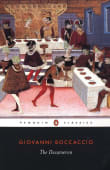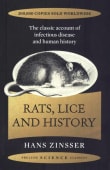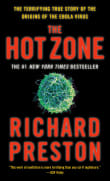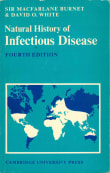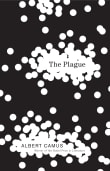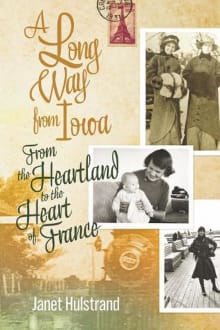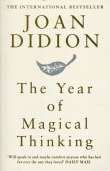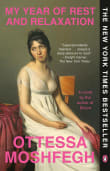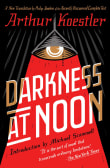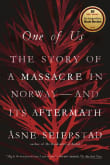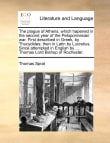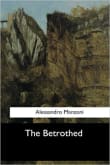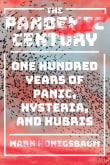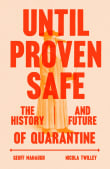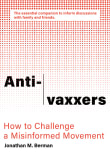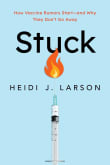A Journal of the Plague Year
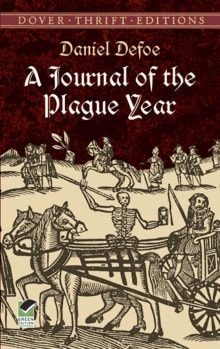
Book description
The haunting cry of "Bring out your dead!" by a bell-ringing collector of 17th-century plague victims has filled readers across the centuries with cold terror. The chilling cry survives in historical consciousness largely as a result of this classic 1722 account of the epidemic of bubonic plague — known as…
Why read it?
8 authors picked A Journal of the Plague Year as one of their favorite books. Why do they recommend it?

I read this book 3 months into the COVID-19 pandemic and LOVED it—it totally made me realize that: 1. we’ve been here before; 2. our reactions and responses are all tried and true (and probably not that useful); and 3. we would survive this time, too—at least most of us.
This is Daniel Defoe (yes, you know him from Robinson Crusoe) explaining what it was like to live in London when the plague came. It wasn’t pretty. The most chilling moment in the book came at the end, when I googled facts about the plague, realized it went away, and…
From Ericka's list on think twice about your doctor’s advice.

I enjoyed reading this book both as a historical artefact of the 17th century but also because Defoe’s plain, matter-of-fact style makes all the chaos, the shrieking, the death carts, families locked in their houses, health certificates, the delirium, the fear of coming too close, the paranoia, the panic and the madness that surrounds the narrator all the more disturbing.
He is a witness whose curiosity far outweighs his fear. But there’s also the Defoe-like sense of adventure when for instance a group of three escape London and shift for themselves in a countryside whose towns and villages are hostile…
From Alexander's list on where a catastrophe makes society fall apart.

The book that flew from the shelves when COVID struck in 2020. Fresh from his masterpiece Robinson Crusoe (1719) and his thrilling novel of urban survival, Moll Flanders (1722), Daniel Defoe turned next to the bubonic plague that devastated London in 1665. The protagonist and narrator of A Journal of the Plague Year (1722) is personally an enigma: we don’t even know his name, just his initials, H.F. But he reports the trauma all around him in relentless, unflinching detail: the terrifying rumours and padlocked houses; the crazed prophets and mass graves; “Persons falling dead in the Streets, terrible Shrieks…
From Tom's list on stories written before 1800.
If you love A Journal of the Plague Year...

This so-called ‘journal’ was an account of the Great Plague of London of 1665, 57 years later in 1722. The style of writing is graphic, detailed, and visual which is why it comes over as an accurate account; you feel as if you are wandering the streets of plague-infested London, watching as plague-infested houses are nailed up with their occupants inside and watchmen placed on the street outside. While the narrative voice is that of another time, the observation and perceptiveness give the book a contemporary feel so that I felt comforted knowing that at least people in distant times…
From Jonathan's list on the human reaction to the Covid-19 pandemic.

For fans of faction (facts + fiction) like us. Imaginary but extremely well-documented memoir of the plague epidemic of London in 1665, Defoe’s Journal contains a good deal of historical information, and it’s been disputed whether it’s based on an original (and now lost) historical document – more likely Defoe’s sources were Samuel Pepy’s Diary and other contemporary accounts. A must-read for all lovers of English history in the Baroque age.
From Rita's list on how the Plague changed history.

Paranoia, hatred of the Other, animosity toward all intellectuals, minorities, and dissidents — these sentiments spread like a disease in Turkey over 2017. In Daniel Defoe’s A Journal of the Plague Year the plague spreads with similar ruthlessness while the eyewitness account provides an anchor for readers. It’s an intense, focused, and yet detached chronicle. Defoe’s book was my template while writing The Lion and the Nightingale.
From Kaya's list on horrible years.
If you love Daniel Defoe...

This is a novel so good it’s often mistaken for an actual journal. A classic by the author of Robinson Crusoe about one man’s experiences in the year 1665 when the bubonic plague strikes the city of London.
From John's list on disease and society.

Another fictional retelling involving the Black Death, but this one written about the last great outbreak in the UK, in 1664-5. Defoe (author of Robinson Crusoe) wrote the book in 1722, drawing on contemporary accounts and considerable research. It describes the mass mortality, fear and horror that accompanied the plague and is one of the earliest examples of closely accurate historical fiction with a purpose: to warn readers that it could all happen again.
From Charles' list on plague outbreaks.
Want books like A Journal of the Plague Year?
Our community of 12,000+ authors has personally recommended 80 books like A Journal of the Plague Year.


